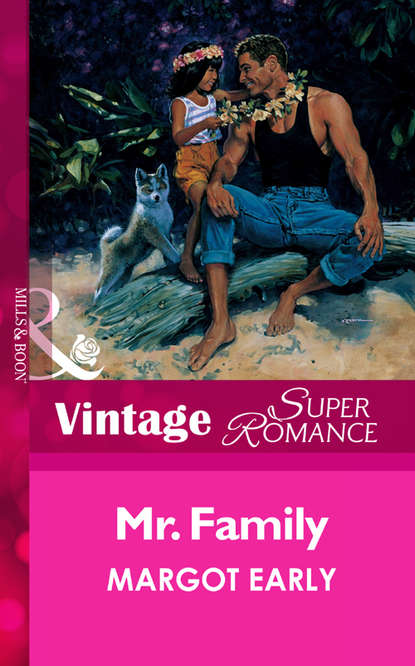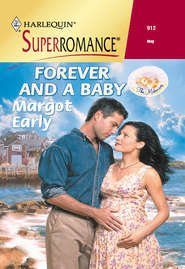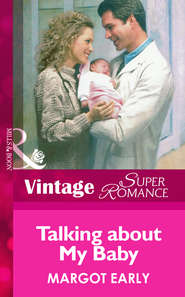По всем вопросам обращайтесь на: info@litportal.ru
(©) 2003-2024.
✖
Mr. Family
Автор
Год написания книги
2018
Настройки чтения
Размер шрифта
Высота строк
Поля
As the plane touched down, the captain welcomed everyone to Kauai. “The temperature in Lihue is eighty-five degrees…”
The plane taxied interminably before it stopped and the seat-belt signs went off with a quiet ding. Erika remained in her seat, letting the other passengers go first. She’d be slow on the stairs. Beside her was a diminutive local beauty in a beach cover-up and flip-flops. She jostled Erika with her bag, then turned and said in charming apology, “Oh, I’m so sorry!” Her voice was musical, her manner sweet. Had Maka been like that?
A graceful human being in every way…
Suddenly Erika felt about a hundred years old.
When the other passengers had passed, she stood up, ducked under the overhead and limped to the door. Slowly, holding the railings, she descended the stairs to the humid airfield and made her way to the small utilitarian terminal. As soon as she stepped inside, she smelled flowers.
He was there, conspicuous for his height and his looks and the little girl beside him, who wore turquoise shorts and a tank top silk-screened with the image of a surfer and the slogan “Breaks to da max!” She was peering intently into a nearby planter bigger than herself.
Kal spotted her and waved, and Erika walked toward him, conscious of her limp, of him watching her. Three yards away, she thought, Your eyes are blue.
Teal, so fine a shade that Erika was surprised she hadn’t always known the color. A teal she could mix from Turquoise and Hooker’s Green Dark. He wore off-white, slightly wrinkled cotton pants and an aloha shirt in navy blue, black and yellow, covered with trumpet vines and ukuleles. Despite the flip-flops on his feet, Erika knew he had dressed up for her coming, but in contrast to the men she knew in Santa Barbara, he seemed casual. Unpretentious. No designer labels, no cologne. Yes, red meat, yes, domestic beer. Shaka. Hang loose.
Mr. Family?
Like a daddy wolf. His wolf’s expression was on her, assessing her, sniffing the air. Alert.
Mutely Erika submitted to the examination.
It was brief, though Kal found her face hard to absorb in one take. Brown eyes. Olive complexion. Smooth skin. She was tall and slender, with the honed limbs of an athlete.
And a slight limp.
He draped the lei hala lei around her neck, and her thick hair reached out and wisped against his fingers, clinging to them with static electricity. “Aloha,” he said and touched his lips to her cool cheek. Strands of hair seemed to leap against his face, and he drew back.
Still feeling the kiss and his hands brushing her as he’d put the lei around her neck, Erika recalled the word for thank you. “Mahalo. What a beautiful lei.”
Well, she’d figured out that mahalo wasn’t Hawaiian for airport trash can, reflected Kal. When she clued into the fact that the word was used mostly by poolside entertainers and interisland flight attendants, she’d be all right.
She was fingering the lei, examining it as though she found it wondrous, which he had to admit it was.
In truth, the lei gave Erika an excuse not to look at Kal. A slanted half-inch white scar crossed the indentation above his upper lip. Its effect was to make her want to stare at his mouth, at his straight white teeth and the faintest gap between the front two.
Instinct distracted her from the flowers, made her glance down, and there was Hiialo, her arms reaching up with another lei. Erika crouched in front of her, and the little girl put the braid of reddish leaves around her neck.
“Aloha, Erika. I’m Hiialo.”
“Aloha to you, Hiialo.”
“My uncle Danny’s hula group made these for you.”
Had that been Maka’s hula group, too? No wonder the leis seemed so intricate, so special. An unexpected welcome from people she had never met. People who loved Kal and Hiialo enough to reach out to her, too. The depth of generosity, the level of hospitality and courtesy, seemed foreign—and beautiful.
No wonder Adele’s so crazy about Hawaii, thought Erika, looking forward to sharing stories about her trip. Then she remembered it wasn’t just a vacation. She might stay here.
Kal said, “Let’s go get your bags.”
AS THEY DROVE NORTH, Erika tried to adjust to riding in a car with two strangers who might become the most important part of her life. Luckily there was a lot on the road to occupy her. Sugarcane grew in fields between the road and the sea. Outside a shopping mall, men harvested coconuts from royal palms that reached skyward like Jack’s beanstalk.
When the businesses and houses of Wailua were behind them, Kal nodded toward the inland hills. “That’s Nounou Ridge. We call it the Sleeping Giant. Can you see him lying on his back?”
“Yes.” Erika knew from studying a map that they were on Kauai’s main highway. It almost circled the island, stopping only for the impassable mountains of the Na Pali Coast. Was Maka killed on this road? How did it happen? Who was at fault?
Kal was thinking of Maka, too. The road was narrowing. They drove past the place where her heart had stopped beating. If Hiialo hadn’t been in the back seat, he would have shown Erika where the cars collided.
He ran out of words until they neared the next town. “This is Kapaa. My folks have a gallery here. It’s right there.” He pointed out the Kapaa Okika Gallery.
Beyond the reflections in the windows, Erika caught a glimpse of paintings hanging against a light background. Then the gallery was out of sight, and the car trawled past shops full of tropical-print silks, colorful beach totes, surfboards and various trinkets. In a blink they left Kapaa, and the highway opened out with a view of the sea.
Miles farther on, as the road curved around the north shore, Kal indicated a lighthouse on a promontory. “Kilauea Lighthouse. You surf?”
“Not anymore.” Not well enough for Hawaii’s waves. Erika stole a glance at Kal. She’d seen in his photographs that he was attractive. But a photo couldn’t carry a man’s smell or his voice. She’d thought she was used to the low warm gravelly quality of the latter from talking to him on the phone. But hearing him speak and seeing his face, his body, all at once was a different matter.
The Pacific shifted colors under her eyes, like a quilt being shaken out.
We’ll be fine, she told herself. I’ll get used to him, and he won’t seem so sexy.
The countryside became lush, and Erika could feel the dampness in the air as the Datsun passed valleys planted in taro. Blossoms spilled from tree branches, and the roadside flowers held as many shades as her paint box. In a tree whose limbs stretched out on sweeping horizontal planes, like a bonsai, sat dozens of white birds with exotic plumage on their heads. They reminded Erika of tropical ports of her childhood, and she thought of her parents, especially her mother, who had loved flowers.
What a place to paint.
She subdued the now familiar doubts…that she’d never sell another watercolor.
“Daddy, Eduardo’s hungry.”
Erika glanced into the back seat. Hiialo had one toy with her in the car, the thing Erika had thought was called Pincushion. A watercolor subject. But she must have been mistaken about its name. “Is that Eduardo?”
“No,” said Hiialo. “This is Pincushion.” She frowned, as though puzzled that Erika had asked. “Eduardo is a mo’o.”
“What’s that?”
Hiialo seemed at a loss. “Daddy…”
“Mo’os,” said Kal, “are giant magical black lizards of Hawaiian legend.”
“Giant?”
“Thirty feet long.” The topic was a good icebreaker. “The ancient Hawaiians worshiped their ancestors, who they believed could be powerful allies after death. Actually some people still depend on their aumakua, deified ancestral spirits, to help them out of trouble. In the old days, a kahuna, an expert in magic, would help people transform their deceased relatives into sharks or mo’os or whatever. Mo’os lived in ponds and were supposed to be fierce fighters, protective of their families.”
“Except Eduardo lives in our house,” said Hiialo.
Erika briefly entertained the notion that Maka had become a mo’o after death. It was a silly idea, but it seemed less cruel than death’s stealing her, leaving her husband and baby alone.
There was only a shade of humor in her next thought: I should make friends with Eduardo.
With Maka’s memory.











